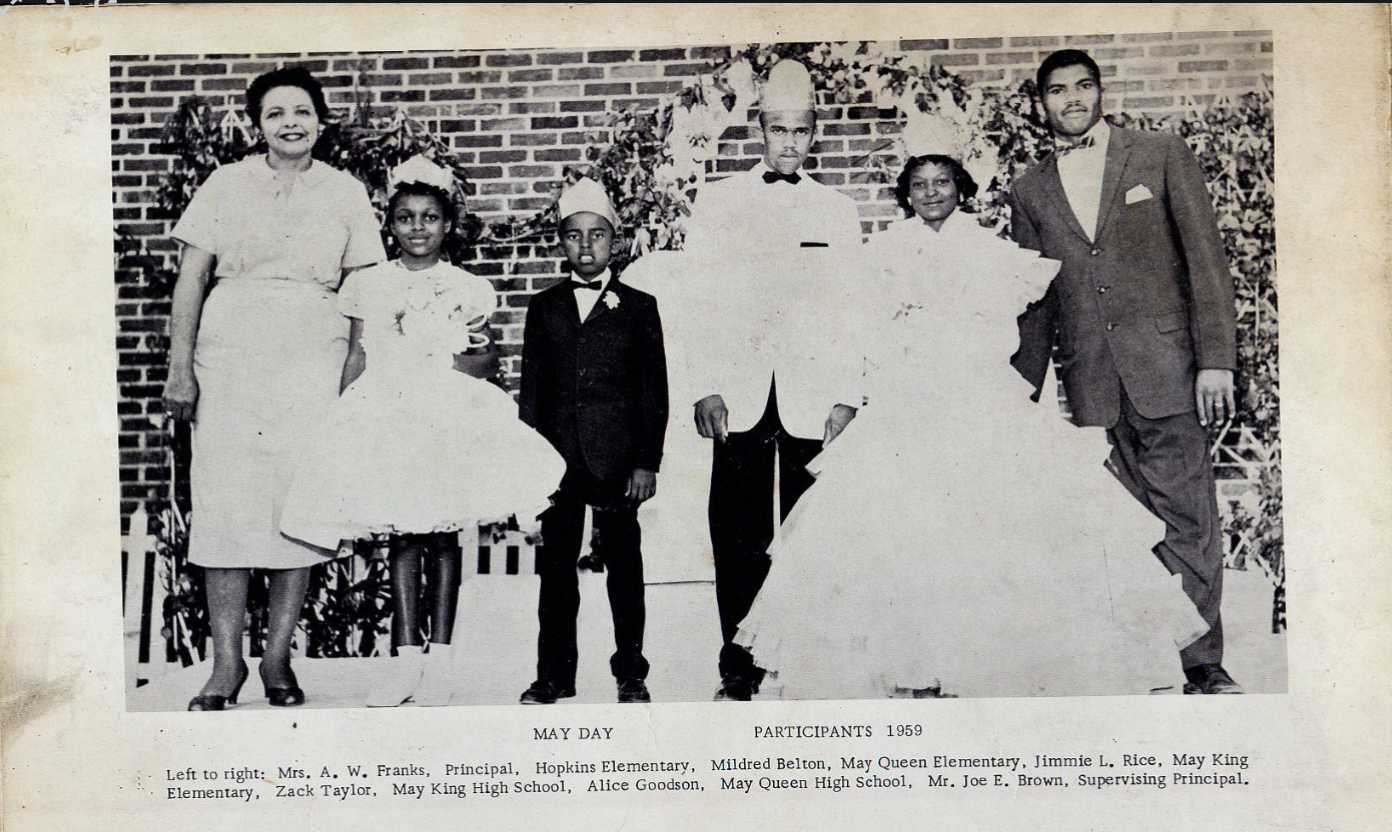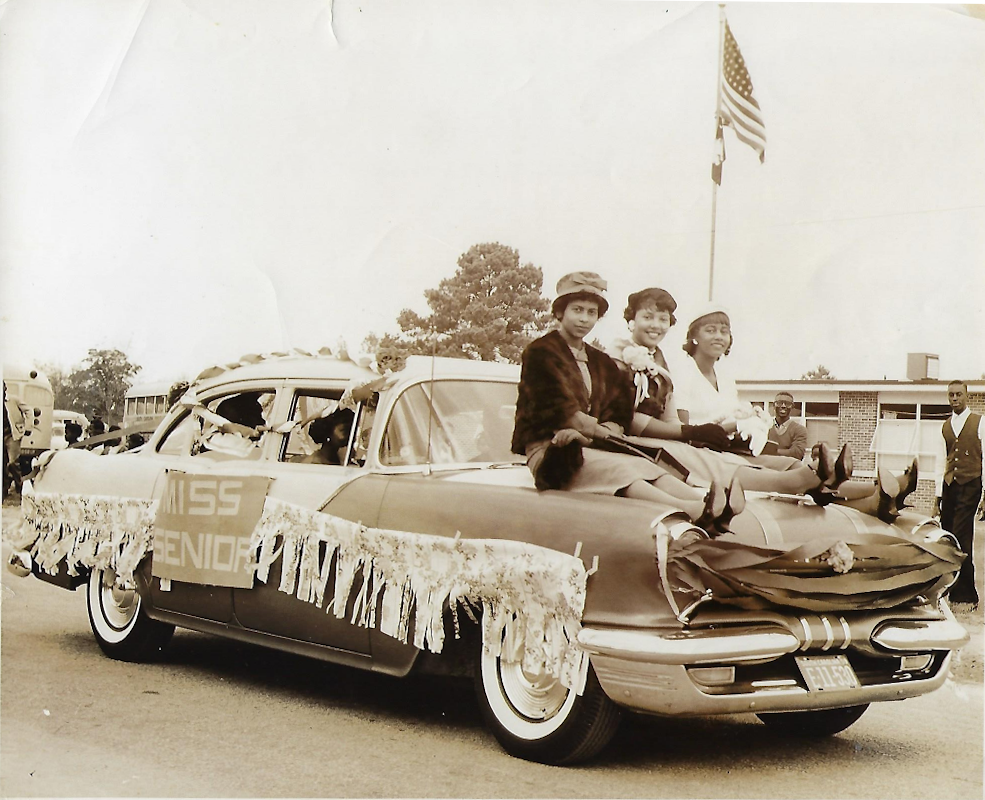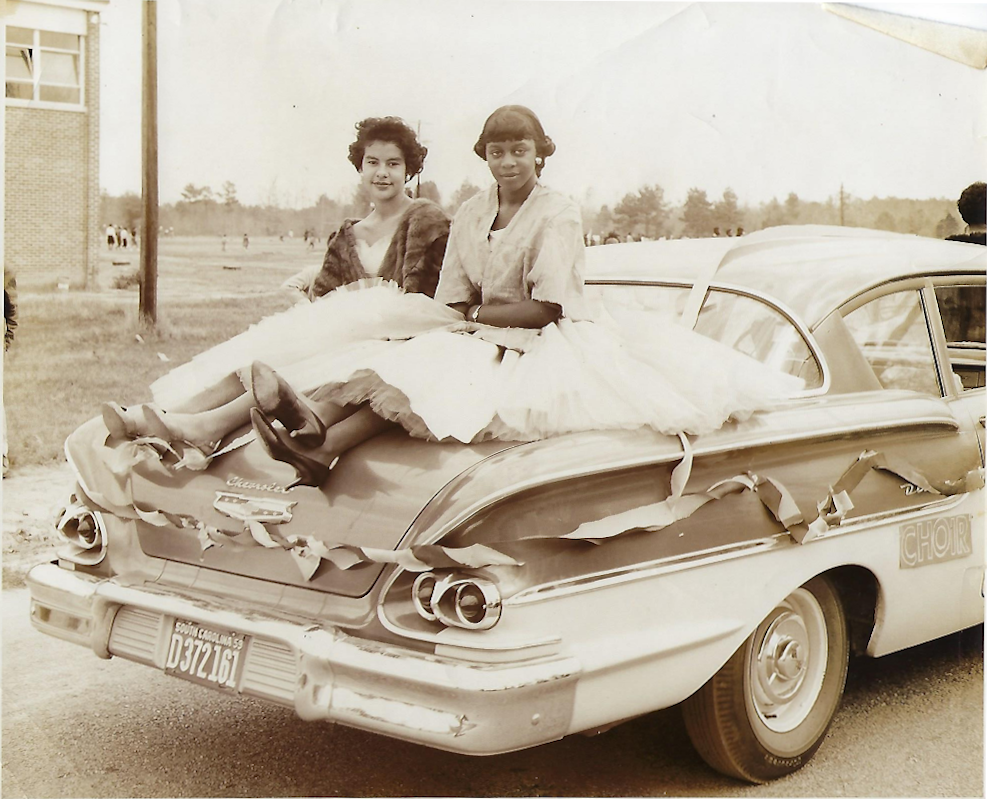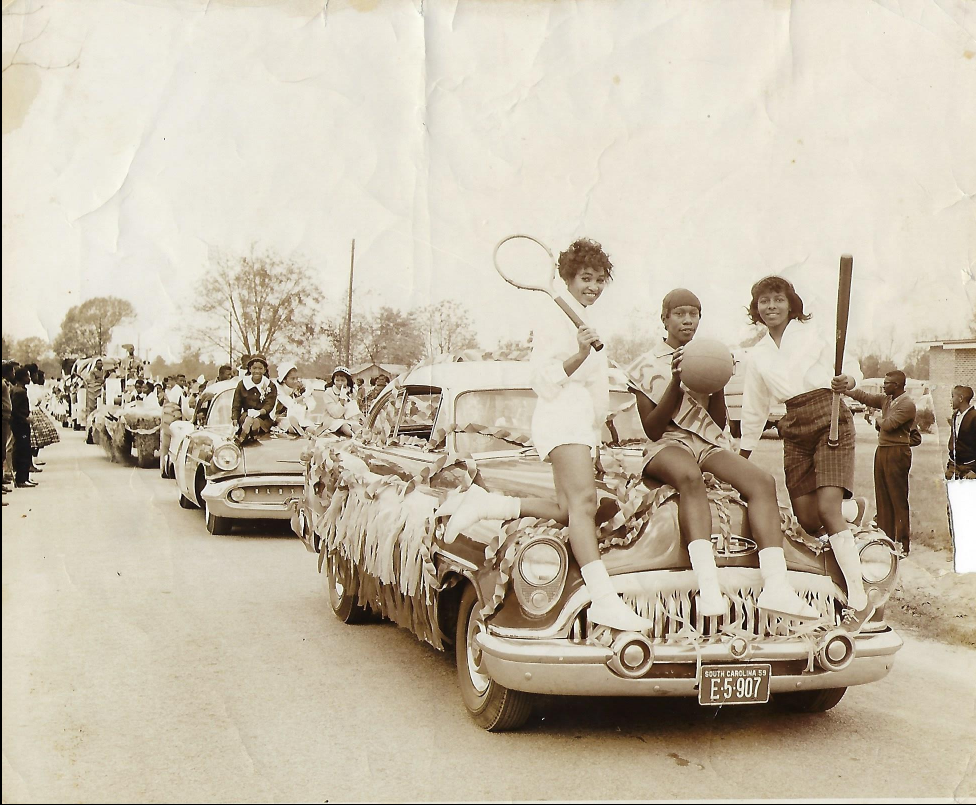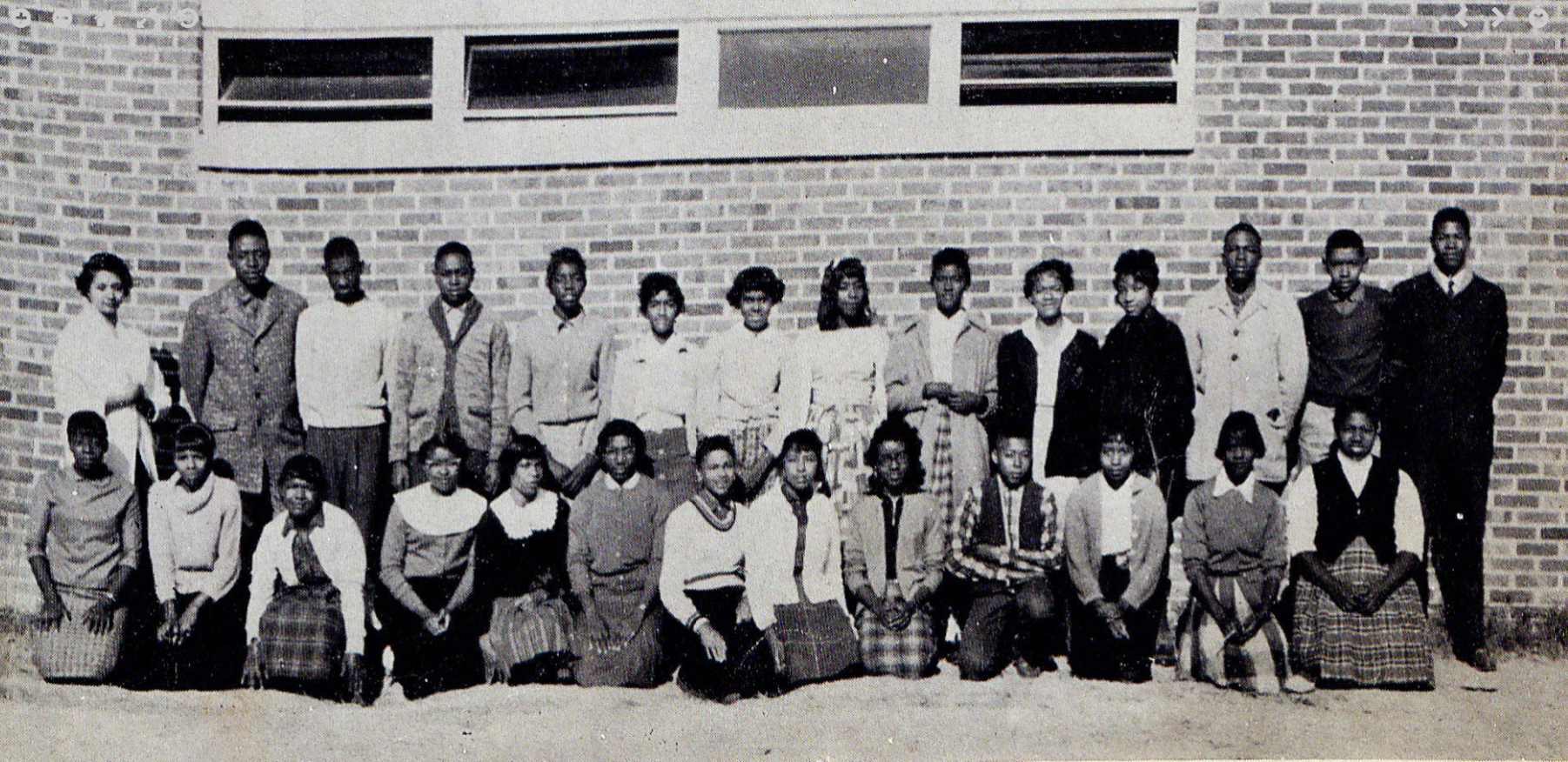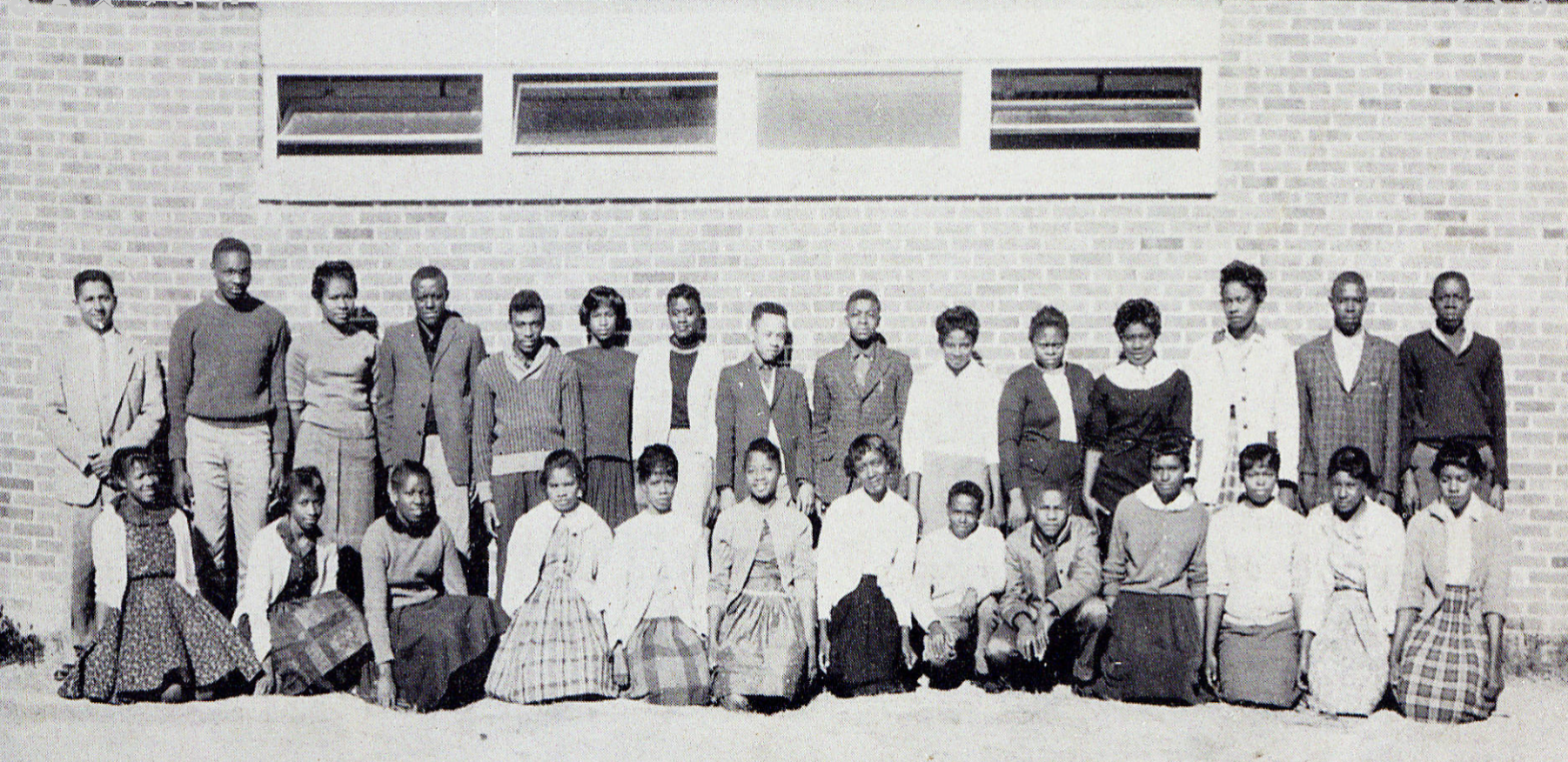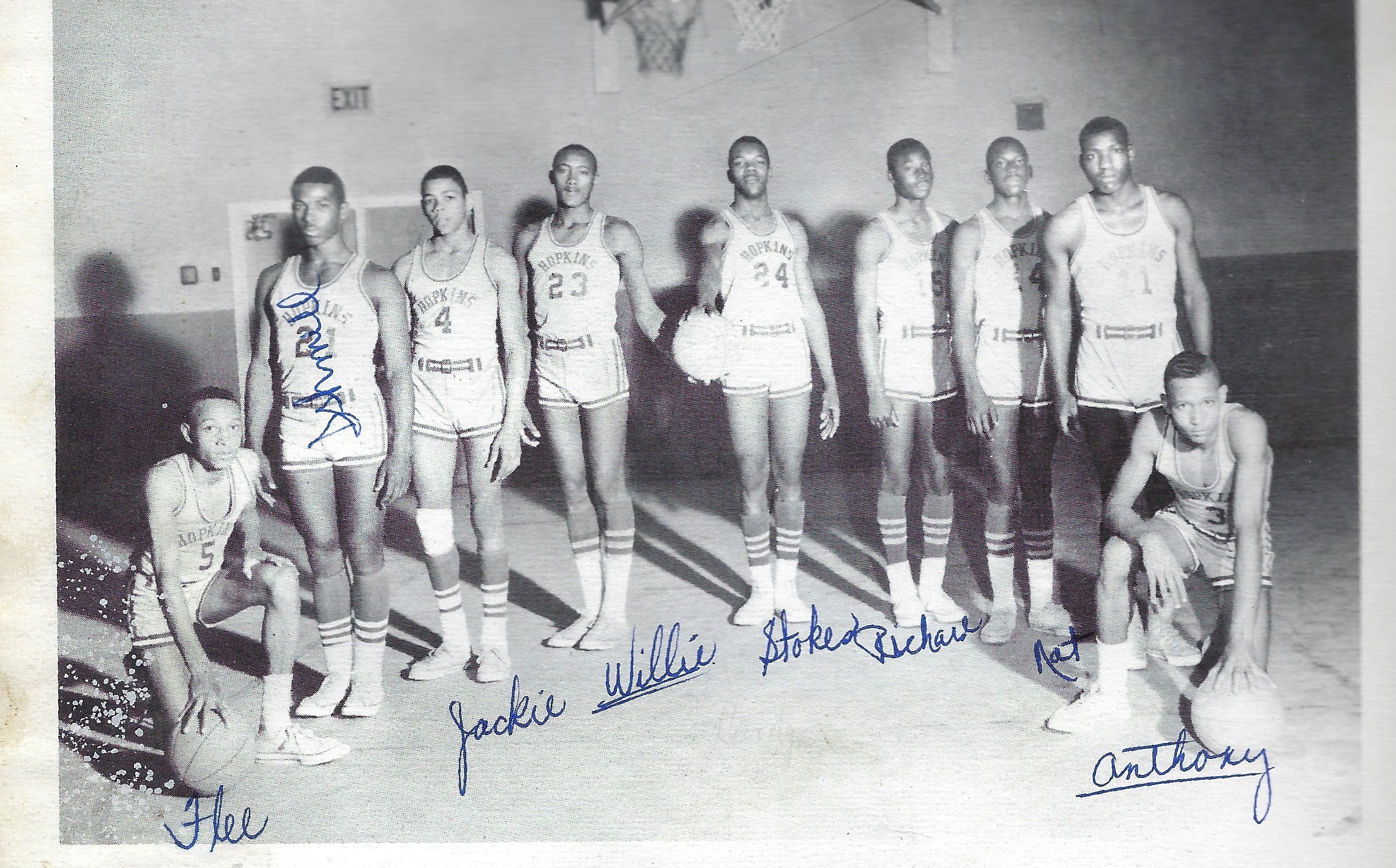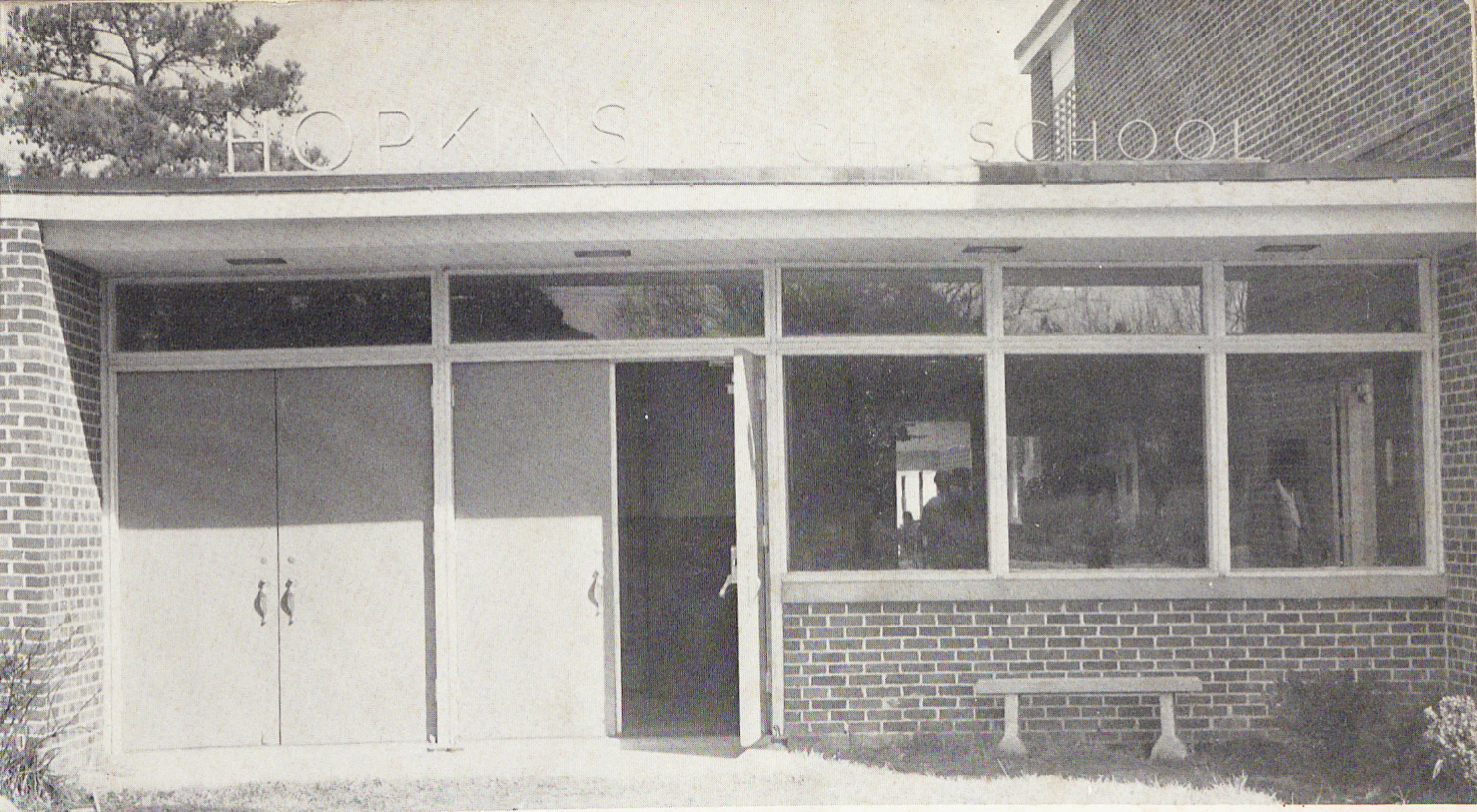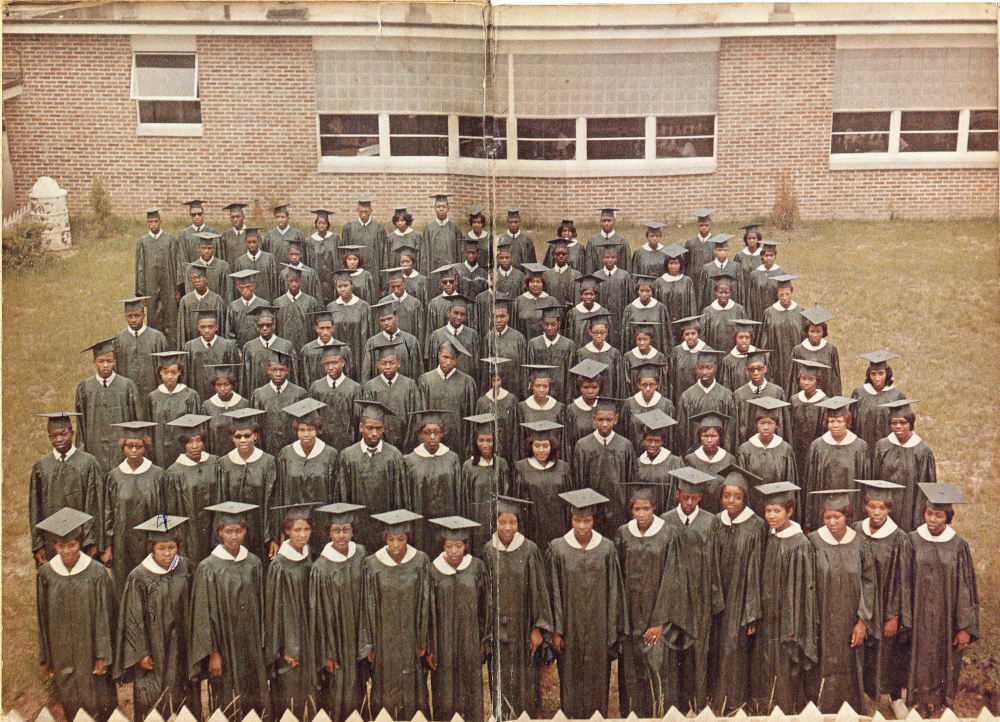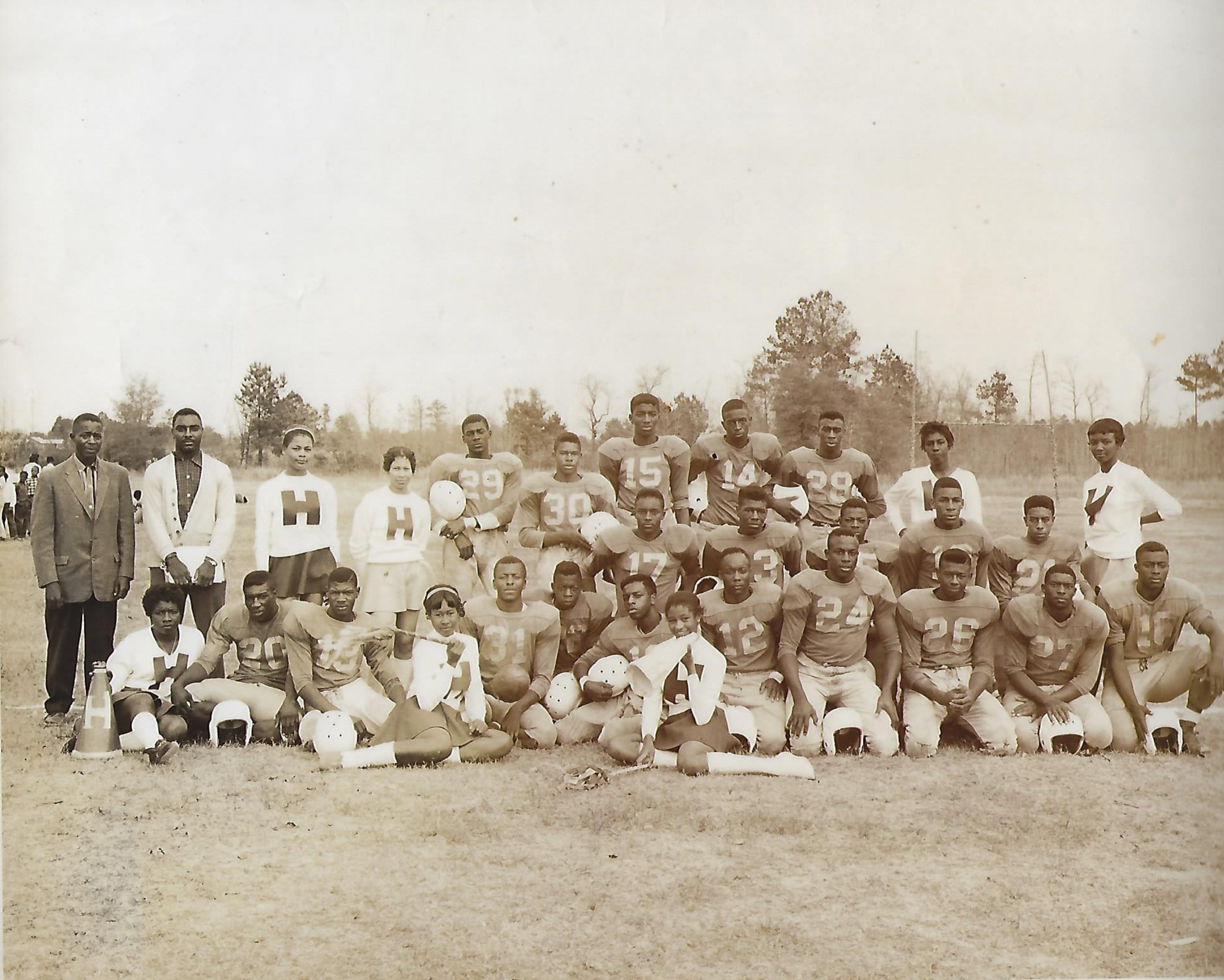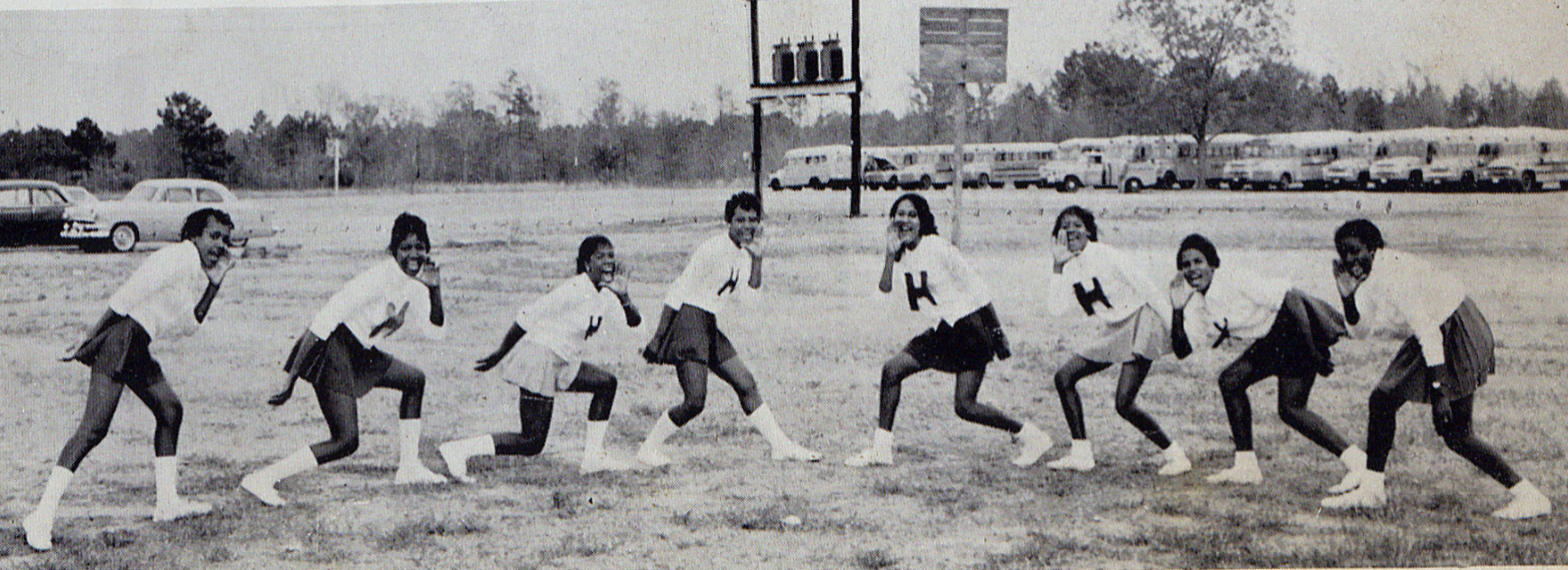Our History
In September of 1994 a group of Hopkins High School graduates reunited to organize the Hopkins High School Alumni Foundation. What is remarkable about this is that Hopkins High School was merged into Lower Richland High School in 1971, so the group passionately clings to the memories of the alma mater that once flourished on the grounds of the Hopkins Middle School. From 1954 until 1971, the high school became a source of pride in the Lower Richland community under the leadership of principal Ulysses R. Barber, a Richland One Hall of Fame honoree. Former State Representative Joe. E. Brown built upon that tradition of excellence at the school from 1959 to 1971 when it began the transformation into a junior high then later a middle school.

Usually overshadowed by Booker T. Washington High School in Columbia with a history dating back to September 1916, the small Hopkins school was created as a result of consolidation of small community schools throughout Lower Richland. Parents, teachers and staff worked together closely to provide the best education possible for the hundreds of students who matriculated there. To keep the legacy of the school alive, the Hopkins High School Alumni Foundation established a primary goal to provide scholarships for high school graduates who were descendants of students, faculty and staff who attended the school. The first scholarship for $1,000 was awarded in September of 1995 to Alexanderia Smith, then a freshman at UNC Charlotte. Recently, this young lady completed her doctoral program in psychology at USC in Columbia. Dr. Alexanderia Smith Glenn is one of many successful products of the Lower Richland community. The graduation rate for our scholarship recipients is phenomenal!
Each year since 1995, the members of the alumni foundation make preparations for a gala evening to celebrate their alma mater and award scholarships through the generosity of our foundation members and community support. We sincerely express our appreciation for each donation which gives recognition to each individual, company or organization for supporting our community and investing in the futures of so many young leaders.
School History
A History of Hopkins High School
During the days before high schools were established in Richland County, Allen University and Benedict College offered courses where students could complete the upper elementary grades as well as high school grades. This continued until 1935. The Hopkins Graded School was built on Clarkson Road for students from first grade through fifth grade. Under the supervision of the local superintendent, the school principal was allowed to add one grade for each year until the next few years. It was not until 1954 that the new school was built in 1954 when Ulysses R. Barber was principal, overseeing the constuction of the new campus and maintaining the growing enrollment at the old site. This new school campus, now the current site of Hopkins Middle School, housed all high school grades in three wings, One wing housed the administration offices, a gymnasium with a stage,a cafeteria for hot lunches and a fully equipped agriculture classroom and shop. One wing housed the library and a conference room along with classrooms. The third wing housed the home economics department and fully equipped science classrooms and biology labs. A fourth wing opened the following year for the upper elementary grades and an office for the elementary principal.
olidation of the small community schools throughout Lower Richland County provided a good supply of experienced teachers for the new school in Hopkins. Upon completion of the entire campus, students in grades one through twelve were being educated in the first fully accredited school for Negroes in the Lower Richland area. The Hopkins School was now made up of pupils from the following schools: Browns Chapel, Cool Springs, Egypt Hill, Beulah, Friendship, Siloam, Gallman, Waverly Pond, Mill Creek, Rock Hill, Flat Lake, Reeves, Claytor, Mt. Moriah, Gadsden, Reeder Point, Arthurtown, Pea Ridge, Montgomery, Weston Junior High and Red Hill. The names of the first teachers who were all former principals were:
| Mrs. Ruth Neal from Reeder Point | Rev. Choatte Neal from Gadsden |
| Mr. William Seymour from Mill Creek | Mrs. Sarah Neal from Hopkins |
| Mr. William Pinckney from Arthurtown | Mr. H. Holmes from Claytor |
| Mrs. Alberta Brown from Rock Hill | Mr. T.J. Sullivan from Eastover |
| Rev. A.C. Jones from Mt. Moriah |
The Columbia Record newspaper recorded the historic opening of the New Hopkins School on February 1, 1954. The article stated: “Modern $301,000 Hopkins High School for Negroes… goes into operation today.”
“About 372 children who had formerly attended Weston, Mount Moriah and Rock Hill will be enrolled at the beautiful new brick and glass building lying about one and a half miles east of Hopkins on the Gadsden-Hopkins road.”
“Thirteen regular classrooms, a home economics room, science laboratory, agriculture shop, library, gymnasium and cafeteria have been under construction since July 6, 1953 to offer needed high school facilities in the Fifth School District and to house two sections of sixth graders.”
“The one story building complex, laid out in the shape of an H, features acoustical tile ceilings, green chalk boards and fine laboratory equipment among a myriad of other modern facilities. Principal U.R. Barber will head a teaching staff of 12.”
SOME FIRSTS: (Click on the “+” icon on the right hand side to view details from other years)
1941
First organized boys and girls basketball teams
1942
First organized basketball game: Hopkins vs Gadsden
1943
- First night basketball game: Hopkins vs John G. Richards. This game was played in the Harbison College gym in Irmo.
- First night softball game for girls: Hopkins vs Segars Park. Team: Irene Reese, Susie Reese, Mary Reese, Mattie Reese, Elizabeth Reese, Itlane Weston, Frances Montgomery, Sisly Anderson and Emma Jenkins
1954
First graduating class:
| Catherine Adams | Willie James Goodwin | Mattie Reese |
| Lottie Bannister | Wardell Harris | Carrie Bell Sims |
| Robert Dinkins | Clarence James | Willie Frank Stocker |
| Cleveland Edmond | Louis Jones | Theresa Tucker |
| Eddie Goodson | Dorothy Portee | Itlane Weston |
| Mamie Lee Goodwin | Nancy Richardson | Hattie Mae Wilson |
1961
First Band instructor hired; First marching band created
1967
First White faculty members assigned
1971
- First NFL player drafted who graduated from the class of 1961. James Chandler was drafted by the Green Bay Packers after his graduation from Benedict College
- First NBA player drafted who graduated from the class of 1967. Jackie Dinkins was drafted by the Chicago Bulls after his graduation from Voorhees College
1971-72
First year the school becomes Hopkins Junior High with Joe E. Brown as principal
Principals
Professor Ulysses R. Barber
Born in Hopkins, Ulysses Rufus Barber attended Flat Lake School, a one room, one teacher school that had seven grades and approximately eighty students. The first teacher Mr. Barber had, and the only teacher he had during his first seven years in school was his father, the Rev. John B. Barber. He entered Hopkins Graded School in the sixth grade where his father taught him for two of the years there. In an effort to complete the requirements for a high school diploma, he moved to Columbia and lived with his Aunt Mariah in order to attend Booker T. Washington High School. He graduated from that school in 1933 after periods of time when he returned to Hopkins to help with the family farm.
In 1934 he enrolled at Allen University where he became a scholar athlete. He received his Bachelor of Science degree in 1939. Professor Barber started his teaching career at Waverly School in Columbia after his graduation from Allen. He moved back to Hopkins the following year because his father had retired in 1940, and Professor Barber then became the teaching principal in his father’s position.
At the time when few of his students had even seen a basketball, Mr. Barber organized the first boys and girls basketball team at the Hopkins School in 1941 and coached them through 1953. He also established the first 4-H clubs for the students. He also traveled to South Carolina State College for several summers to receive his Master’s Degree in 1958.
In 1953 construction began on a new school campus to accommodate the increasing enrollment at the Hopkins school after a number of one room, one teacher schools closed and students were sent to the Hopkins school. From 1953 until 1954, Professor Barber worked between the two schools until all grades were established on the new campus. The Hopkins School became the first fully accredited “Negro School” in Lower Richland. After a brief illness in 1959, Professor Barber made the decision to return to his first love, teaching. He began teaching fourth and fifth grade science at Gadsden Elementary School. His school responsibilities also included chairing the faculty in-service training committee, coordinating busing at the school level and serving as advisor for the Boys 4-H club. It was during the 1972 school year that he was selected Teacher of the Year, and the following year he was distinguished as the District One Teacher of the Year and nominee for State Teacher of the Year. The Richland County Education Association presented him the Human Relations Award in 1972, and he also received recognition from the Greater Columbia Chamber of Commerce as Outstanding Teacher of the Year. Professor Ulysses R. Barber retired in 1978; however, his teaching career lasted another decade or more. He taught adult literacy classes and also taught adult education classes. As a senior in his late eighties, he taught Bible Studies at Hopkins Park and received recognition for his services with the Richland-Lexington Council on Aging where he served on the Advisory Board.
In 2006, Ulysses R. Barber was inducted into the Richland School District One Hall of Fame. The new auditorium on the campus of Hopkins Middle School bears his name as a testament to his life of service to education in the Lower Richland community.
Dr. Joe E. Brown
When young Joe Brown was in high school, he was up before sunrise so he could deliver the morning paper. He would then get ready early to drive a school bus. Then he went to school where he was an excellent student. After school, it was back to driving the bus. In the fall, there was football practice, and he became a star athlete. Otherwise, Brown’s nights were a juggle between studying, working at a service station and a job he held as a custodian. Joe E. Brown knows hard work because he lost his father as an infant. It is partly what has driven him all of these years, a need to make his own way in light of that loss. Determined to go to college, he made it to Allen University with a football scholarship. When college became too expensive, he simply returned to the familiar, and went to work. Joe E. Brown put himself through college, working seven nights a week at the Elks Club in Columbia. The experience ignited in him something that still burns today – an insatiable drive and a peerless work ethic. It is what made him the first college graduate in his family.
Dr. Joe E. Brown has made significant contributions in the Lower Richland community, in Richland County and in the state of South Carolina. His influence has made a positive impact on numerous individuals in the field of education, in local and state business, in sports, in medicine and most importantly, in government. He started his teaching career at Atlas Road Elementary School and quickly rose to the position of administrator. His first principal role came at Hopkins High School in 1959. In 1971 the campus was transformed into a junior high school, but Mr. Brown remained in the principal position. He continued to serve as principal there until his retirement in 1985. He left a legacy of respect, perseverance, hard work, determination and life long learning for all students, teachers and staff members.
As a successful administrator in Richland School District One, Dr. Joe E. Brown served as a mentor and trainer for numerous school administrators who gained valuable experience under his leadership. The students with whom he worked over the years still hold him in high esteem and regard him as the inspiration in their successful careers. He received his honorary doctorate degree in 2001 from Allen University where he worked most recently in the Alumni Office. In 2014, Dr. Joe E. Brown was inducted into the Richland School District One Hall of Fame.
1985 was the end of an outstanding career as a principal and the beginning of a new career in politics. Dr. Brown decided to run for the District 73 seat in the SC House of Representatives. He emerged victorious against a field of eight candidates. Over his twenty years in the state legislature, his influence has been felt in some of the state’s most critical issues. He has been an outstanding supporter of public education, and he has taken on the cost of health care for his constituents. His major passion was addressing the health disparities between whites and African Americans in South Carolina who suffer disproportionately from chronic illnesses. On December 4th, 2009, the House of Representatives of the state of South Carolina honored Representative Joe E. Brown for his more than twenty years of service to the citizens of Richland County as a member of the SC General Assembly.
It is impossible to expound upon all of the honors and achievements of Dr. Joe E. Brown, but all who know him will acknowledge wholeheartedly that he is above all a man of faith with outstanding leadership abilities, and he strongly supported the Hopkins High School Alumni Foundation. We will forever remember and honor him for the service he gave to the Hopkins community, Richland County and the state of South Carolina.
Get in Touch. Get Involved.
Support the Alumni Foundation by becoming a member, sponsoring a scholarship, or order a brick paver for the Walkway Hall of Fame. We sincerely express our appreciation for each donation which gives recognition to each individual, company or organization for supporting our community and investing in the futures of so many young leaders.


